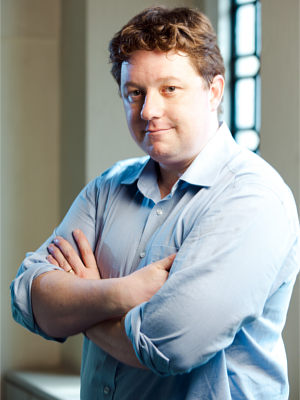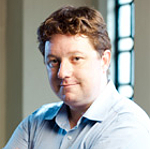Fellowship - how it helped a digital humanities scholar
Posted on 25 September 2014
Fellowship - how it helped a digital humanities scholar
 By Stuart Dunn, lecturer at the Centre for e-Research, Kings's College London, and 2014 Institute Fellow.
By Stuart Dunn, lecturer at the Centre for e-Research, Kings's College London, and 2014 Institute Fellow.
One problem with being a digital humanities academic these days is the sheer volume of scholarly activity available – from seminars and workshops to conferences and symposia. In London alone, one could easily attend three or four such events every week, if not more.
My Fellowship has provided me with an excellent heuristic for selecting which events one goes to, and helped me to connect my participation in the community around how digital humanists approach and practice the sustainability of what they use and build.
Especially to one used to applying for research grants, the application process was extremely simple and lightweight. The focus was on your ideas and thinking, rather than just box-ticking. Even writing the application forced me to think succinctly about the challenges and questions facing the DH community in sustaining software. These include whether we are too reliant on proprietary software, what role crowdsourcing will play in the future and in what ways does the inherently collaborative nature of Digital Humanities impact in sustainability issues.
Even before I arrived in Manchester for the selection meeting, I had developed a greater appreciation of the fact that sustainable software is indivisible from sustainable data, relationships, ideas and methodologies. The humanities are, after all, as much about process as outcomes, and it was interesting to see how this contrasted with the perspectives of those from more software-oriented and scientific backgrounds.
I have traveled to several very interesting meetings as a result of my fellowship, and the need to address the issue of software sustainability in my presentations at these events have prompted some very interesting discussions, and broadened my network of contacts. This will culminate in November 2014 with a workshop on software sustainability in the digital humanities, with contributions from a range of disciplines and professional perspectives. The event will be covered in a special issue of the community journal Digital Humanities Quarterly, which will draw together all these strands of thinking.
Finally, my fellowship proves that the SSI welcomes applications from anyone with an interest in this area, and not just those directly involved with coding or software development – which I am most certainly not.
Find out more about the Institute's Fellowship Programme.

